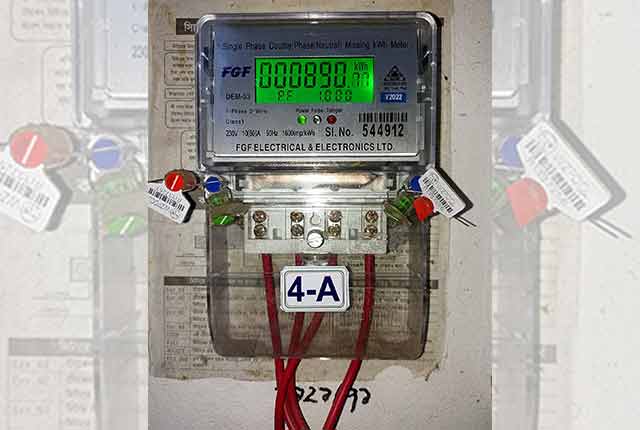As the countdown to the transmission of power to the next administration in May this year continues, analysts say there is an opportunity for the outgoing government to write its name in gold by using the power sector as a launch pad for Nigeria’s economic transformation which it has always trumpeted, writes Festus Akanbi

With the full resumption of business and commercial activities in the country after the New Year break, conversations around the economy are being narrowed down to the revamping of the power sector as a catalyst for economic development and as a last-ditch effort of President Muhammdu Buhari administration to write its name in gold.
Although the incumbent administration has barely five months to hand over to a new government which will emerge after the February 25 presidential election, economic affairs commentators said the five month-period offers the Buhari administration the golden opportunity to redeem itself after a period of floppy performance in the economic sector.
For instance, the Chief Executive Officer of the Centre for the Promotion of Private Enterprise (CPPE), Dr. Muda Yusuf, said now is the time to reposition the power sector as well as address lingering downstream oil sector challenges to enable major investment inflow into the country by 2023.
Drumming support for a power sector reform, Yusuf said: “An enabling environment must be created to sustain current private sector investment in the sector and attract new private capital to the electricity sector. Urgent reforms are vital concerning electricity tariffs, metering and the deepening of the energy mix. We need robust incentives (fiscal and monetary) to boost private investment in renewable energy.”
With the administration almost giving up on the oil sector amidst a regime of indiscriminate pricing of petrol and diesel and the attendant catastrophic consequences on businesses, analysts said the last straw available to the current administration remains the power sector.
The thinking is that should the government reposition the power sector in a way that will meet the needs of the Nigerian populace, the administration would have provided a catalyst for economic development with a corresponding increase in revenue accruable to the government in form of taxes and levies.
The reality today is that Nigeria’s power industry is multidimensionally challenged, afflicted by under-investment, outdated infrastructure, debts and inefficiencies. Power shortages have crippled SMEs, stunted the growth of productive sectors and made the cost of local products uncompetitive.
Power Sector Reform
The Electric Power Sector Reform Act 2005 and the succeeding Roadmap for Power Sector Reform 2010 set out to comprehensively transform the power industry through privatisation, raise output to 40,000MW by 2020 and attract investment and the best global players into the market. Regrettably, the lofty milestones have been missed because of the age-long decay occasioned by mismanaging privatisation.
Today, Nigeria’s electricity supply industry is in the middle of a protracted crisis which analysts said is characterised by the recent takeover of many electricity distribution companies (DisCos) by commercial banks and lenders due to poor management performance, exemplified by loan default, the frequent collapse of the national electricity grid network, strike actions by electricity sector workers; and 44.6% of Nigerians still without access to the electricity grid- one of the highest in the world, in nominal terms.
According to the Senior Special Assistant to the President on Power Infrastructure, Nigeria, where businesses rely more on diesel-powered generators, needs 50,000 megawatts of power to meet its energy needs. The nation is plunged into darkness from time to time due to frequent national grid collapses, thus piling pressure on businesses and households who spend heavily on diesel and generators to generate their power.
There is a very long list of manufacturing companies and factories that have folded up in Nigeria. The shortlist includes Berec Batteries; Exide Batteries; Okin Biscuits; Osogbo Steel Rolling Mills; Nigeria Sugar Company; Bacita; Tate and Lyle Sugar Company; Matches Manufacturing Company, Ilorin; Nigeria Paper Mill Limited located in Jebba, Kwara State; Nigerian Newsprint Manufacturing Company Limited, Oku-Iboku, Akwa Ibom State; and the Nigerian National Paper Manufacturing Company Limited in Ogun State. Although the death of these organisations was caused by many reasons, analysts said insufficient power supply in the country played a big role in sealing their fate.
Power as Catalyst for Economic Revival
According to experts, energy is required to power industrial processes and to produce goods, equipment and services in a vast majority of productive sectors, within an economy. It is therefore correct to say that insufficient, unreliable or costly access to electricity has remained a binding constraint to business in Nigeria.
Industry commentators lamented the fact that the limited growth of Nigeria’s electricity supply industry, combined with the high cost of diesel and petrol generation, has crippled the growth of the country’s productive and commercial industries. Additionally, it has stifled the creation of jobs in this sector, adding to the burden of unemployment in a large and rapidly growing population.
Speaking on how a revamped power sector can trigger economic development, a member of the defunct Presidential Taskforce on Power, Mr. Belije Madu explained that while being the common denominator for sustainable economic growth, improved electricity supply would simultaneously put money in the pockets of all Nigerians, since most Nigerians currently rely on self-generation that cost more than grid-supplied electricity, in terms of naira/kWhr.
Job Creation
He explained that the direct effect of providing constant and sustainable electricity will be that Nigerians are assured of having a sufficient supply of electricity to their homes and places of work, adding that the ample supply of electricity would stimulate the creation of additional jobs.
“First, the increased jobs would be created via the construction and operation of power plants across Nigeria, as well as, the construction of facilities needed to supply fuel to these power plants. In addition, the infrastructure required to evacuate electricity from the power plants and distribute the electricity to Nigerians would also have to be developed. During the construction stage of these facilities, thousands of additional jobs would be needed,” he said.
On the other hand, the indirect effect, according to Madu, will be that the provision of a constant and sustainable electricity supply will ensure the creation of indirect jobs within the Nigerian economy. He explained that these indirect jobs will be created by the suppliers of goods and services used in the construction and operation of power plants, transmission and distribution facilities.
“The induced effect will be that the provision of a constant and sustainable electricity supply will, in addition, have an induced effect on the Nigerian economy; the induced effect will come in form of efficiency of services due to increased productivity and increased material demand, created by consumers, spending their wages on local goods and services. As a result of the direct and indirect jobs created during the construction and operation phases, new consumers would be added to boost the economy,” he explained.
He believes that the general effect will also include industrial customers, typically, facilities and equipment which use electricity for processing, producing or assembling goods; diverse industries, such as manufacturing, mining, agriculture, and construction would prosper with an uninterrupted electricity supply. Overall, this sector uses more than a third of Nigeria’s electricity.
Economic Cost
In its report on the impact of regular power cuts last year, the World Bank said the economic cost of power shortages in Nigeria is estimated at around $28 billion – equivalent to 2% of its Gross Domestic Product (GDP). “The lack of reliable power has stifled economic activity and private investment and job creation, which is ultimately what is needed to lift 100 million Nigerians out of poverty,” said Shubham Chaudhuri, World Bank Country Director for Nigeria.
“The objective of this operation is to help turn around the power sector and set it on a fiscally sustainable path.”
Analysts believe that a sufficient and constant supply of electricity is indispensable for the economic development of any progressive nation. This applies to all areas of a modern economy, beginning with the production sector and including transportation and the service sector down to private households.
Nigeria Electricity Supply Industry
The Nigeria electricity supply industry comprises generating companies (GenCos), the Transmission Company of Nigeria (TCN) and the DisCos. There are eleven DisCos including Abuja Electricity Distribution Company (AEDC), Benin Electricity Distribution Company (BEDC), Enugu Electricity Distribution Company (EEDC), Ibadan Electricity Distribution Company (IBEDC), Jos Electricity Distribution Company (JEDC) and Kaduna Electricity Distribution Company (KADECO). Others include Kano Electricity Distribution Company (KEDCO), Eko Electricity Distribution Company (EKEDC), Ikeja Electricity Distribution Company (IE), Port Harcourt Electricity Distribution Company (PHEDC) and Yola Electricity Distribution Company (YEDC).
Out of the 11 DisCos, banks have taken over six or 54.5%, which are AEDC, KADECO, KEDCO, BEDC, IBEDC and PHEDC due to poor financial performance and management. YEDC was re-concessioned in 2021, while JEDC was re-concessioned in 2022.
Will the current administration do the needful by focusing on power sector development as a way of building a solid economy that its successor will be proud of or will it continue to grope for the solution to the myriads of economic issues besetting the country? Analysts said the time to reposition the power sector is now.



